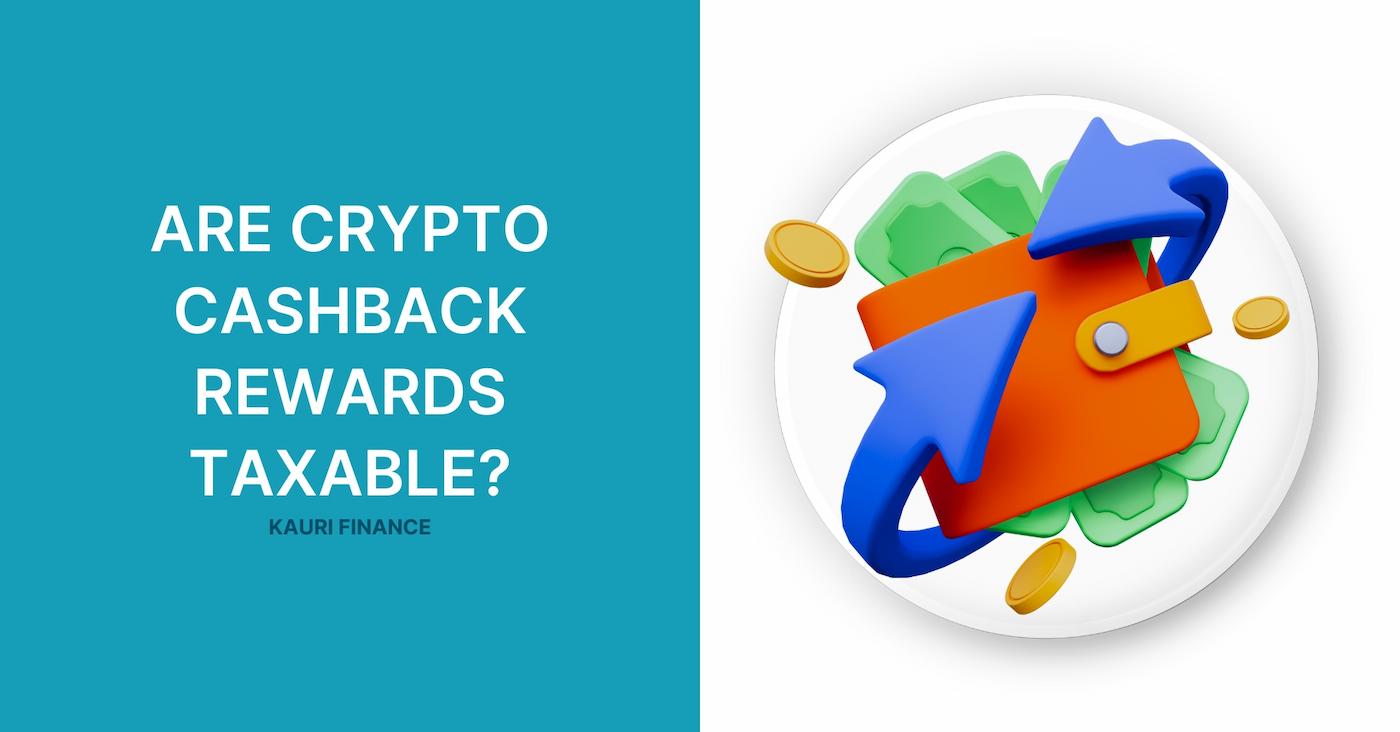
Are crypto cashback rewards taxable?

As cryptocurrencies weave deeper into the fabric of daily commerce, a variety of innovative benefits have surfaced, chief among them being crypto cashback rewards. These rewards function as a digital kickback for users who choose crypto transactions for their everyday purchases, effectively blending the financial utility of cryptocurrencies with traditional reward systems. This convergence raises important questions about the tax implications associated with receiving such rewards.
Understanding Crypto Cashback Rewards
Crypto cashback rewards are incentives offered by companies to encourage the use of cryptocurrencies for transactions. These rewards are typically a percentage of the purchase price returned to the consumer in the form of cryptocurrency. For instance, a user might receive 2% of their purchase amount back in Bitcoin or Ethereum when using a crypto-linked card offered by services like Kauri Finance.
Taxable Nature of Crypto Rewards
In many jurisdictions, including the United States, the Internal Revenue Service (IRS) treats cryptocurrencies as property for tax purposes. This classification has significant implications for crypto cashback rewards:
- Taxable Events: The receipt of crypto cash back rewards is generally considered a taxable event. Consumers are often required to report these rewards as income at their fair market value at the time of receipt. This means that if you receive crypto rewards when making purchases, you must calculate the market value of the crypto at that moment and report it as income.
- Capital Gains Tax: Beyond the initial receipt, if you hold the cryptocurrency and it appreciates in value before you sell or exchange it, you may also be subject to capital gains tax. This tax is based on the increase in value from the time you acquired the crypto to when you disposed of it.
Regulatory Environment
The taxation of crypto assets continues to evolve as governments around the world adapt to the burgeoning crypto economy. Here’s how several key markets approach crypto taxation:
- United States: The IRS requires all crypto transactions to be reported, including those involving crypto cashback rewards. These are treated as income and are taxable at the recipient's income tax rate.
- United Kingdom: Her Majesty's Revenue and Customs (HMRC) also views crypto assets as taxable. Users must report rewards and pay income tax and National Insurance contributions based on the type of crypto activity.
- European Union: Taxation can vary between EU countries, but many follow similar guidelines, treating crypto rewards as taxable income or capital gains.
- Canada: The Canada Revenue Agency (CRA) treats cryptocurrencies as commodities, and transactions involving cryptocurrencies are viewed as barter transactions. Crypto rewards must be reported as income at their fair market value.
Best Practices for Managing Tax Liabilities
To effectively manage tax liabilities associated with crypto cashback rewards, consider the following strategies:
- Keep Detailed Records: Document every transaction involving crypto rewards, including the date, amount, and market value of the cryptocurrency when received. This information will be crucial for accurate tax reporting.
- Use Tax Software: There are several tax software tools designed specifically for cryptocurrency transactions that can help track your crypto activity and calculate your tax obligations.
- Consult Tax Professionals: Given the complexity and evolving nature of crypto taxation, consulting with a tax professional who understands cryptocurrency can be invaluable.
- Stay Informed: Tax regulations regarding cryptocurrencies are still developing. Regularly update yourself on the latest tax laws from your local tax authority.
The Role of Kauri Finance
Kauri Finance, providing financial services in the Web3 space, offers tools that can assist businesses and individuals in managing their cryptocurrencies effectively, including the integration of tax management solutions. By leveraging Kauri Finance’s services, users can ensure that their crypto transactions, including cashback rewards, are tracked and managed in compliance with local tax regulations.
Conclusion
As the intersection of cryptocurrency and everyday financial activities continues to grow, understanding the tax implications of crypto cashback rewards is essential. While these rewards can enhance the benefits of using cryptocurrencies, they also come with tax responsibilities that should not be overlooked. By maintaining proper records, utilizing the right tools, and seeking professional advice, cryptocurrency users can navigate the tax landscape confidently and ensure compliance. As the market matures, the integration of comprehensive solutions like those provided by Kauri Finance will be crucial in managing these new forms of financial activity effectively.
